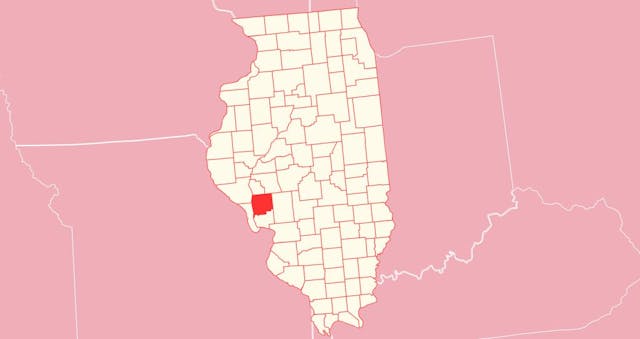Rehabs in Greene
Greene County, with its seat Carrollton, is situated in Illinois, US. It was formed on January 20, 1821. According to the census, the population was 11,985 in 2020.
In general, the communities of each region need rehabilitation centers. They can seek professional help at any time when they struggle with a substance use disorder (SUD). Sadly, residents of this province do not have that opportunity because of the absence of Greene County rehabs. Hence, they have to visit nearby counties to find treatment.
Drug and Alcohol Evaluation
Medical experts handle an in-depth evaluation before admitting people into clinics. First, it includes an intake assessment. Clients tell about their medical history and details that refer to substances they have used. This phase determines the health condition of the client.
Then, screening shows what chemicals are in the blood. Based on these results, doctors can know what symptoms clients will have during the upcoming detox.
Rehab Programs in Greene County
There are various kinds of drug and alcohol addiction treatment programs. This lets residents choose the plan that fits their health needs and well-being. Yet, they can do this by visiting centers in other regions.
Detox
Rehab programs include detox in their first stage. This means that patients stop using drugs and alcohol. However, people may have severe withdrawal symptoms, especially in the first days of detox. For that reason, doctors manage it through medicines.
When physical and emotional withdrawal symptoms disappear, people move to a residential program.
Inpatient (IP)
Residential programs (IP) are primarily designed to provide security. Here, residents stay away from the substances. In other words, there are no triggers for temptations and desires.
Next, the doctor makes a healing plan according to the evaluation results. Since addiction data is not the same for all patients, specialists adapt it to the needs of each one.
Then, they make a daily schedule. This approach helps people stay stable throughout their recovery journey. The daily plan includes education, therapy, and support. So, they enter a sober life and learn to control their emotions.
Partial Hospitalization Program (PHP)
Transferring from inpatient treatment to PHP, patients continue to receive the same services. In contrast, they spend nights and weekends at home.
This care includes case management, in-person and group therapy, early recovery skills, and 12-step support.
Intensive Outpatient (IOP)
People can choose IOP, either part of a continuum of care or a separate curing phase. It includes different meetings, such as therapy, counseling, and peer support plans.
Those help to gain communication skills, listen to each other's problems and provide support. The substance abuse history and coping skills of each member motivate other participants.
In addition to group meetings, patients have an in-person appointment with a therapist or counselor. They determine the needs of a person and what achievements they have made in their recovery journey. Then, they build the healing plan to fit the health state of the patient.
Outpatient (OP)
When someone is ready to return to their daily responsibilities, they may choose OP. They can schedule sessions either in the morning, evening, or weekend. Specialists decide the number of meetings and the length of treatment depending on the health condition of a person.
OP offers counseling, addiction education, support groups, and relapse prevention training.
Payment Options
The situation is somewhat challenging for residents when the province lacks rehab centers. Yet, looking for more affordable clinics may only sometimes justify their hopes. It is more complicated when clients do not have insurance.
For that purpose, medical centers accept alternative payment options, such as state, federal or governmental funds. They may offer a sliding fee scale based on family income. Clinics also sign a financial contract if one does not have an alternative payment means.
Forcing Teens Into Rehabilitation
According to the laws of Illinois, involuntary commitment to a drug and alcohol addiction center for teens is not permitted. This means that parents should find other options to help them.
Unluckily, there are neither rehabs in Greene County nor special programs for minors suffering from substance abuse. So, parents should seek the help of experts in other counties.

